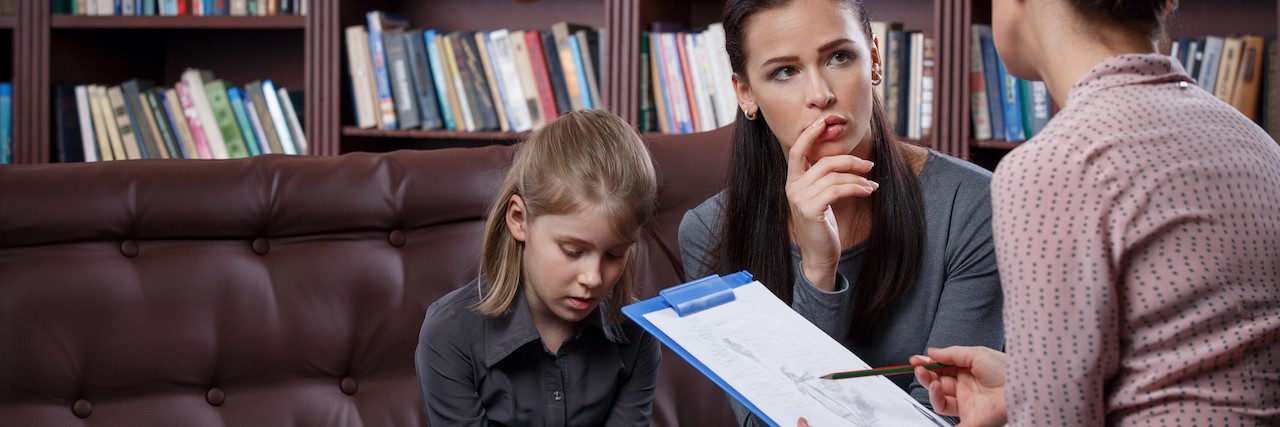The Question I Have to Ask Myself as a Therapist With a Mental Illness
How much to share? It’s a problem everyone who works in mental health has to answer at some point. In most cases, it’s situation-specific: Will sharing a bit of my personal struggle help the therapeutic relationship I’ve built with a family or hurt it?
By help, I mean show my kiddos with autism and behavioral health disorders and their families you can have a diagnosis and still be a happy, healthy and functioning member of society. By hurt, I mean the look I’ve seen flash across many faces.
“Do I really want a therapist battling her own issues to support my child and me? What if she has a breakdown and can’t honor her commitment to us? What if she’s biased toward a certain treatment modality because it’s what worked for her? What if she’s less stable, less focused, less everything than a different therapist?”
Some of them can’t get past this initial impression, and their attitude toward me changes. I ignore it and smile when I see them because that’s what it means to be a professional.
When you do share, how do you present it? Do you make light of it and risk offending them?
“I’ve never been late to an appointment or submitted an incomplete note for billing. I guess that OCD is good for something!”
Do you stay serious and then have it be an elephant in the room, with them curious but hesitant to ask for the details?
“There’s no shame in admitting therapy alone isn’t enough. I know it’s a difficult decision to decide to try medication, but I’ve made it myself. I can tell you it’s made a big difference in my quality of life. I’m better able to manage my anxiety with coping skills when the medicine is taking the edge off.”
Trust me, some families will just come right out and ask the embarrassing questions. Your answers will not offend them, but neither will your refusal to answer.
Some families will stare at you like you’ve lost your mind. How can you be so open about your issues when they’re working with their child in hopes they won’t have issues anymore?
In the end, it usually works out. More of my colleagues and clients know I take medication than my family members do. I’d much rather give my families an explanation for my sometimes odd behavior rather than have them guessing or just worrying I am slightly unhinged and not doing anything about it. From personal experience, I can tell you the explanations they’ll come up with are way more serious than OCD and anxiety, and they will rarely bring up those concerns on their own.
If I’m perfectly honest, I share for more personal reasons. How can I consider myself a champion for kiddos with mental health diagnoses if I spend all my time and energy trying to hide my own? It’s my version of “Physician, heal thyself.”
“Therapist, practice what you preach.”
“Therapist, show the world that therapy isn’t as hokey as some people think it is.”
“Therapist, be a positive role model. Be open and honest, teach your clients and their families not to be ashamed.”
And if you lose a few of them along the way, grieve, refer them to others and let them know you’ll be rooting for them from the sidelines.
The Mighty is asking its readers the following: Write a thank you letter to someone you realize you don’t thank enough. Check out our Submit a Story page for more about our submission guidelines.

